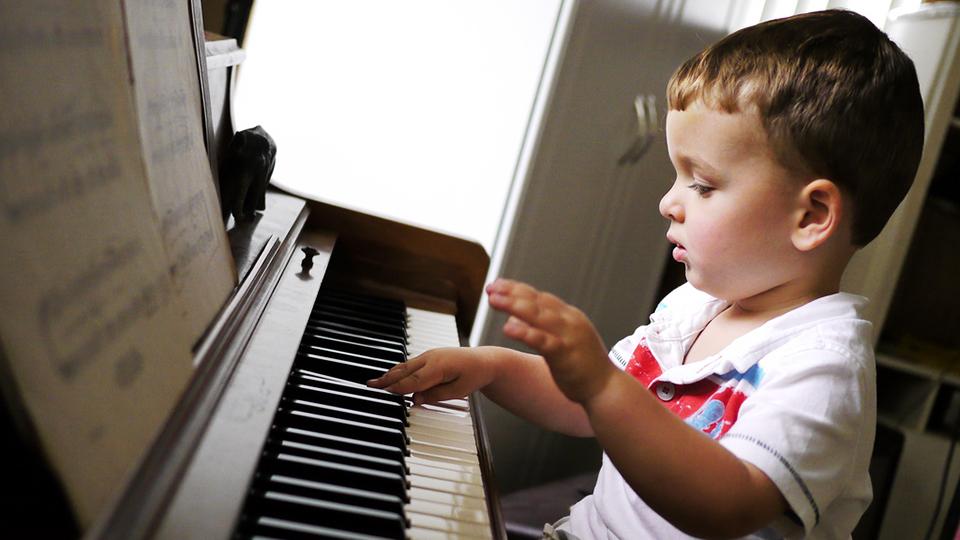Studying the impact of home musical environment in early childhood
Primary page content
A new research tool to assess the home musical environment in families with children under the age of five has been developed and validated by a team led by academics from Middlesex University London and Goldsmiths, University of London.

Dr Nina Politimou from Middlesex University, lead author of a report of the study published in the journal PLOS ONE, said the research team developed the Music@Home questionnaire to provide academics and researchers, for the first time, with a systematic instrument to assess the home musical environment from infancy to preschool years.
While an increasing body of research reveals the beneficial effects of formal musical experiences on early cognitive and linguistic development, the majority of studies focus on musical training given in classrooms. However, for most children under five musical experience consists of singing songs, dancing, being exposed to recorded music and playing musical games in the home environment.
Professor Lauren Stewart, report author and co-director of the MSc in Music, Mind and Brain at Goldsmiths, said: “now that we have developed a tool to capture individual differences in the musical home environment, it will be possible to use it to probe possible links to the development of non-musical capacities, such as language, that may benefit from early musical enrichment.”
A total of 1060 parents of children under five participated in the development and validation of the Music@Home questionnaire, which comprises two versions, one for infants and one for preschool children. Both versions consist of different subscales such as, parental beliefs towards music, child engagement with music and parent initiation of singing/music making providing researchers with the opportunity to investigate how different dimensions of the home musical environment may contribute to developmental outcomes.
The study also investigates associations between the Music@Home and musical characteristics of parents such as musical training and personal engagement with music.
This article is based on an original story produced by Middlesex University London.
Image: Child playing piano by Eduardo Merille via Flickr.